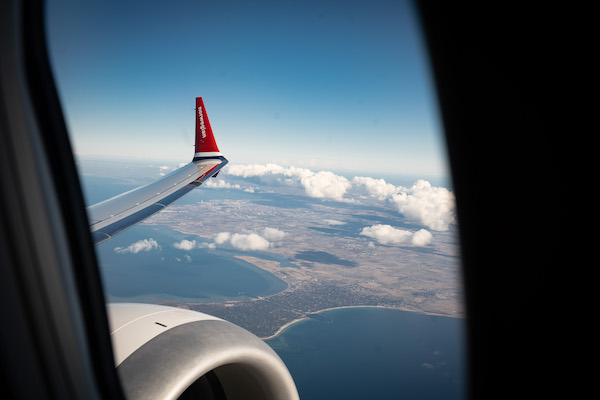Norwegian Air’s ambitious summer plans encountered unforeseen obstacles due to extensive air traffic control strikes across Europe. This disruption significantly affected the airline’s capacity to maintain its summer schedule. The situation resulted in unexpected flight cancellations and schedule delays impacting numerous passengers.
April was particularly challenging for Norwegian Air, with over half of the cancellations concentrated in a single day. This unprecedented event was exacerbated by the simultaneous closure of airspace in Norway, affecting not only Norwegian Air but also other airlines operating in the region.
Impact of European Air Traffic Control Strikes
Air traffic control strikes across Europe posed significant challenges for Norwegian Air Group last month, as the airline was preparing to scale up operations for the summer season. The strikes led to extensive disruptions, culminating in a striking 51% of its April flight cancellations occurring on a single day.
The punctuality rate, which measures the share of flights departing within 15 minutes of their scheduled time, fell to 81.3%. This marks a decrease of two percentage points compared to April of the previous year, illustrating the direct impact of these disruptions on operational efficiency.
Operational Adjustments and Increased Capacity
Norwegian Air operated an average of 81 aircraft in April, a rise from 73 in March, indicating a substantial increase in capacity as part of its summer programme. This expansion, however, was met with unforeseen challenges due to air traffic control issues.
The airline’s capacity rose by 18% year-on-year, with passenger numbers reaching 1.9 million. Despite this growth, the airline’s regularity suffered, attributed largely to air traffic control disturbances in Norwegian airspace.
Effect on Passenger Experience and Load Factor
The load factor—a key performance measure that assesses the utilisation of available seating—dropped to 80.3% in April.
This decrease, down by three percentage points, was partly due to an early Easter that affected travel patterns, with many holidays falling in March instead of April.
Despite these challenges, nine new routes were introduced as part of the summer schedule, bringing the total to 47 new services.
Comments from Leadership
Geir Karlsen, the Group Chief Executive, commented on the situation, noting that April marked a significant increase in capacity with the addition of 14 more aircraft in operation compared to the same period last year. “The passenger numbers show an increase of 13% compared to the same period last year,” Karlsen stated, reflecting the airline’s ambitious growth plans.
Despite this optimism, the operational disruptions caused by the air traffic control strikes have posed unexpected challenges to Norwegian Air’s service delivery.
Mitigation Strategies and Future Outlook
Norwegian Air is actively working on strategies to mitigate the impact of such disruptions in the future. The introduction of new routes is part of this proactive strategy to broaden its operational footprint.
Adaptation to changing conditions is crucial for maintaining operational resilience and customer satisfaction in the aviation industry. Implementing more robust contingency plans may help in overcoming potential disruptions in the future.
Industry-Wide Implications
The issues faced by Norwegian Air highlight broader industry challenges in managing unexpected disruptions such as air traffic control strikes. Airlines operating in Europe need to consider these factors as part of their risk management strategies.
Efficient coordination with air traffic control agencies and governmental bodies becomes imperative to minimise operational hiccups. This scenario underscores the need for industry-wide collaboration to enhance resilience against such systemic challenges.
Social Media Reactions and Public Perception
Social media responses to the disruptions varied widely, with some passengers expressing frustration over delayed schedules. Others appreciated the airline’s efforts in communicating updates.
This public discourse plays a crucial role in shaping the airline’s reputation and highlights the importance of effective crisis communication strategies.
The disruption caused by air traffic control strikes during Norwegian Air’s summer ramp-up underscores the complex challenges airlines face in maintaining consistent service. As the industry continues to evolve, proactive strategies and effective communication will be essential in managing future disruptions and maintaining passenger trust.

